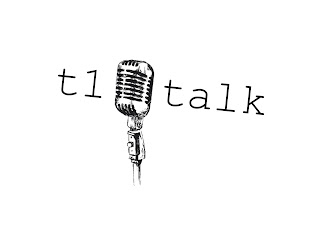T1 Talk: World Diabetes Day Edition (Part Two)
Welcome back to T1 Talk, a series of conversations between Frank and I about all things Type 1. Today is World Diabetes Day and we're discussing diabetes awareness both on a large scale and in our day to day lives. You can find Part 1 over on Frank's blog here.
I think we’ve both find it difficult to stomach some of the negative consequences of diabetes promoted in awareness campaigns. So what does your ideal diabetes awareness campaign look like?
Bec: I’ve said it many times: as a person with diabetes, complications don’t sell. They don’t help, they generate fear and they add to many of the misconceptions that already exist in the general public.
My ideal diabetes awareness campaign is one that makes diabetes more visible, which is a lot closer to what’s happening this year! Make it normal, like wearing glasses. We know the signs to let us know when to see an optometrist. We know what glasses are for. We pass no judgement when someone wears them. I would like diabetes to become like glasses.
Frank: I agree with you! Sadly most of that make diabetes visible stuff is coming from overseas and from fellow people with diabetes, rather than from our local diabetes organisations.
I am slowly coming around to the fact that from an political advocacy standpoint, we do need to express some of these more negative consequences to create better outcomes. However at the same time, the muggles know so little about diabetes. I can’t help but feel that these campaigns will create stigma among people who don’t know a lot about diabetes.
My ideal awareness campaign would simply showcase the ordinary tasks we need to do each day in order to manage our condition. Injecting insulin, checking blood sugar levels, counting carbohydrates, preparing for physical activity. The list goes on!
Let’s talk about diabetes in the media. How do you feel about some of the media coverage surrounding diabetes here in Australia, and how do you feel that this could be improved?
Bec: Oh don’t get me started. When I first started blogging I was known for acting like a little ball of rage toward the media for misconceptions about diabetes. I’ve written an open letter or two in my time. I find it infuriating that diabetes is so poorly represented. I spent 9 months doing a major work on it in Year 12 which only served to confirm my suspicions. Fear sells. So the media often drop heavy words and concepts in when talking about diabetes.
But there’s also blame. We’re “suffering” but we’re also “a drain on taxpayers money”. Sometimes it’s painted in a way that insinuates people deserve diabetes, particularly type 2. That’s not okay. There is little distinction between the types, no mention of other types and mostly negative connotations around any type. That’s the first step toward improving media coverage: education. Be accurate, be specific and be empathetic. These are real people with lives and families that are impacted by the words the media use. Little things like that can make a huge difference in public perception.
Who knows, if there was more of a focus on education, perhaps certain teenage girls wouldn’t have felt the need to start a blog back in the day because someone said something stupid to her every day.
Frank: Oh yes, how many times have I heard a news headline that introduces a poor “diabetic sufferer.” I reiterate my prior statement, media coverage also contributes to stigma. I think it’s important to remember that most of the commercial media rely on sensationalism to drive ratings and ad revenue, rather than credibility.
I really do applaud Diabetes Australia’s Language Position Statement, which is intended for this very purpose. My understanding is that this document is usually given to speakers and journalists talking about diabetes. Roche even handed it out to all of their invited speakers at this year’s Roche Educators Day. This document goes a lot further than just ‘diabetic’ versus ‘person with diabetes.’ Language has the power to shape our attitudes towards diabetes, and we really need to be mindful of who is on the receiving end of these messages.
Bec: Language certainly has an enormous impact! I’m glad it’s going beyond patient first terminology though (which yes is important too). We need to be presenting information in a way that is clear, accurate and relevant if we’re going to make any change in the diabetes space.
Is there one aspect of diabetes that you feel you’re continually having to explain to others? Or something that others just don’t seem to get?
Frank: Why is it that people only seem to remember that I have diabetes when it’s dessert time? I’ll be ready to sit down and enjoy my plate of Christmas trifle or Cherry Ripe cupcakes, and someone will ask me if I need to be careful about eating sweets. Way to make a guy feel guilty...
I’m more than happy to be asked about my diabetes, because it does take up a fair chunk of my time. But it’s extremely frustrating to be asked the same question over and over. Why does nobody ever ask me how I feel about living with diabetes? Or some of the preparations I need to make before my next holiday? Or what you do as a popular diabetes blogger and advocate?
If you’re playing along, the correct answer to that question is “I can eat whatever I wish to, so long as I give insulin to cover it.” If I’m feeling a little snarky, I might also add that “what I choose to eat is none of your business.”
Bec: Oh I completely get that, and it’s the one thing I’m always explaining too! “Are you sure you should be eating that?”, “I didn’t get you chocolate because I didn’t think you could eat it” and so on.
I mean, I consider chocolate an important food group… so these misconceptions have an enormous impact!
I wish I had the guts to use your snarky response, but no. I say “I can eat whatever I want as long as I take insulin for it”. It’s more confusing for people because I’m also gluten intolerant, so I have to add the caveat “as long as it doesn’t have gluten in it”.
Frank: Oh yes, how could I forget the diabetes police telling me what I should and should not be eating. What is it with people? I think we are just too nice, and we really need to be harder and more defensive around these remarks. The more I think about it, the more I realise that nobody has the right to make me feel guilty for what I do and do not eat.
And that's a wrap on our T1 Talk World Diabetes Day 2017! World Diabetes Day aims to bring awareness and you can help. Whether it's doing a walking challenge, buying a charity pin or simply wearing blue- get involved in spreading the word about what diabetes is, and perhaps more importantly, what it isn't.


nice post.
ReplyDelete